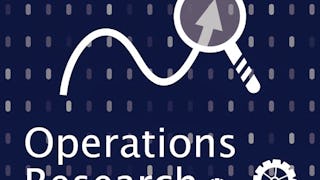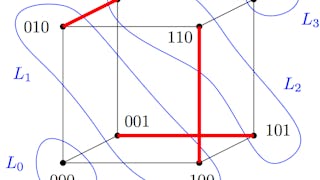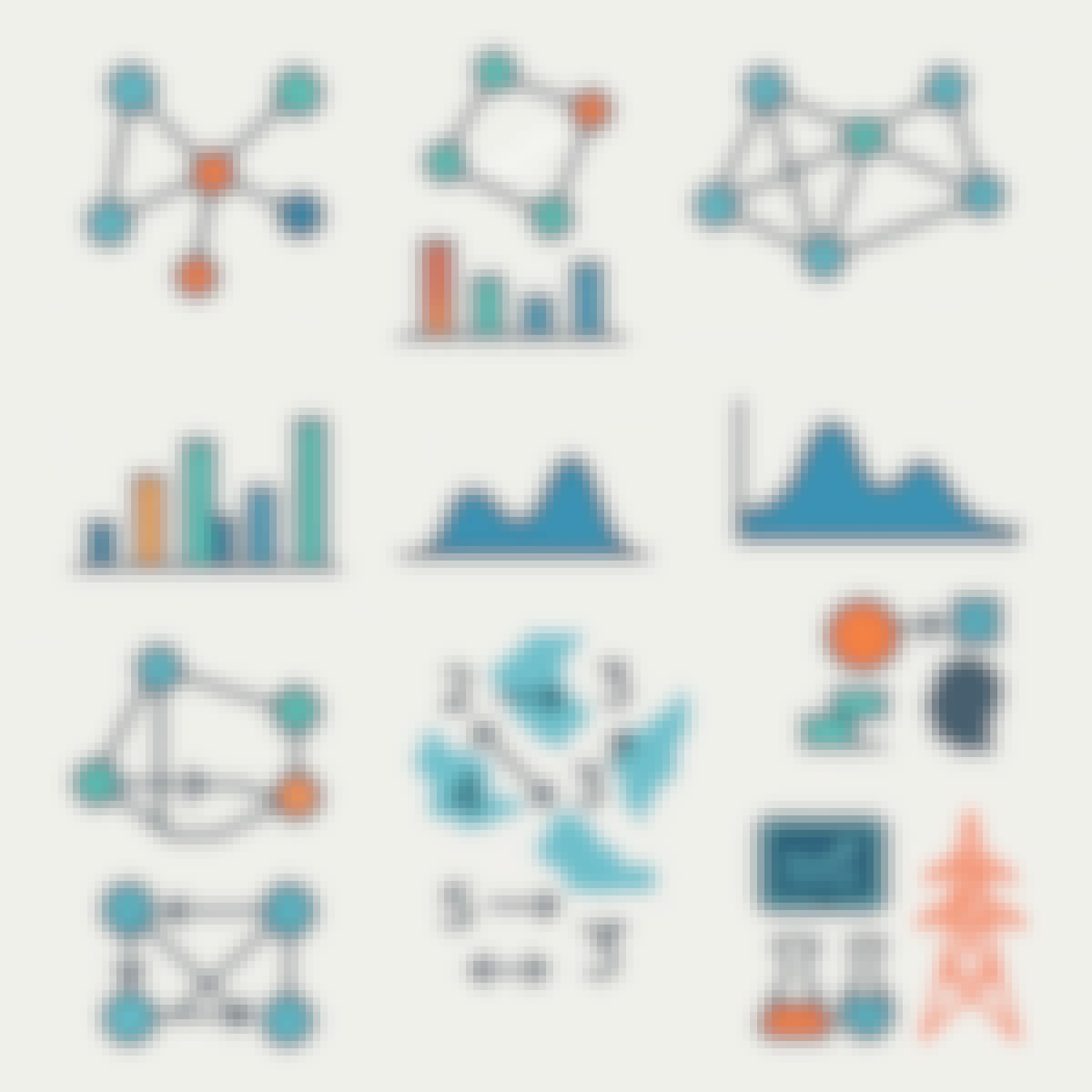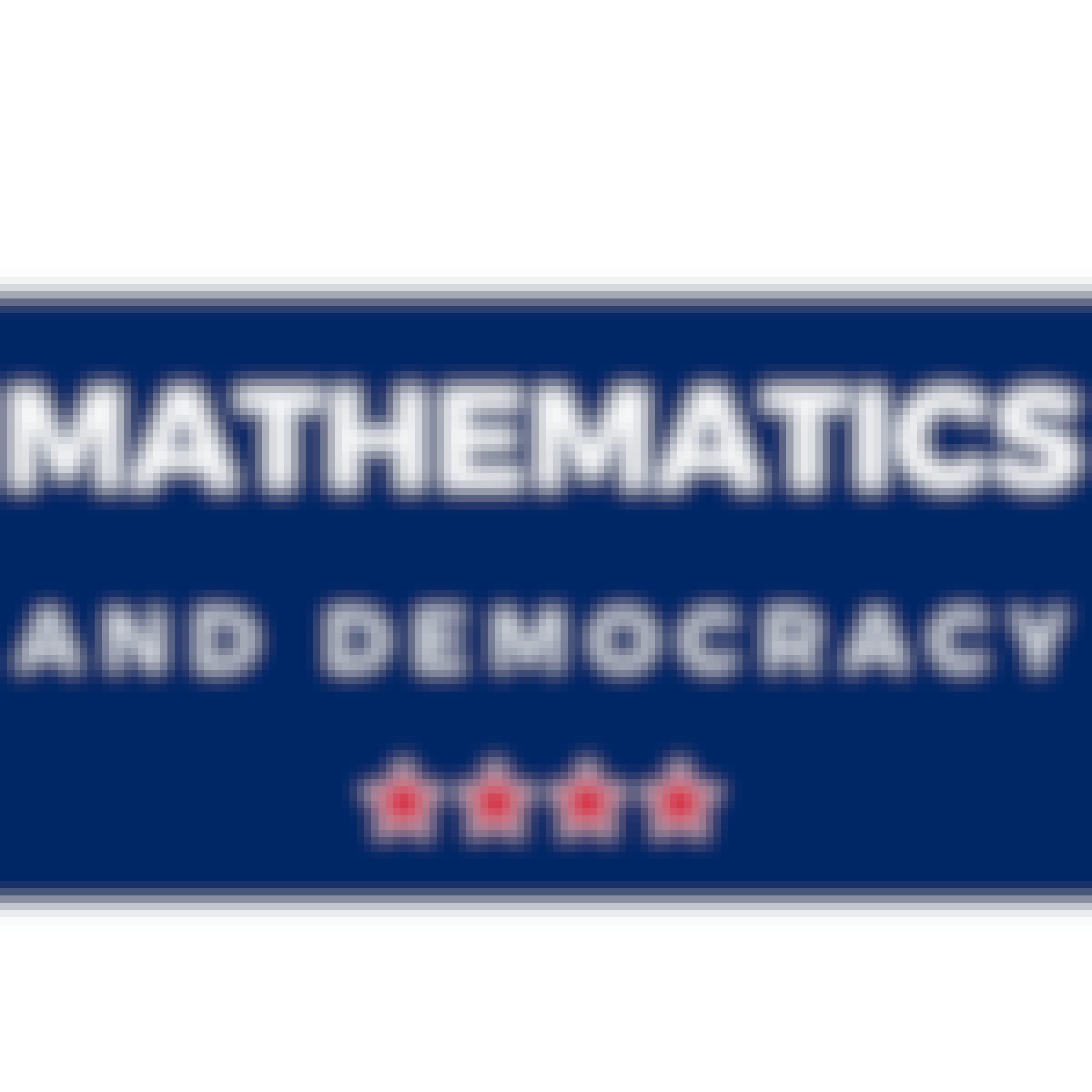- Browse
- Combinatorics
Combinatorics Courses
Combinatorics courses can help you learn counting principles, permutations, combinations, and graph theory. You can build skills in problem-solving, algorithm design, and mathematical reasoning, which are crucial for fields like computer science and operations research. Many courses introduce tools such as generating functions and combinatorial algorithms, which are used to solve complex problems in optimization and data analysis.
Popular Combinatorics Courses and Certifications
 Status: Free TrialFree TrialU
Status: Free TrialFree TrialUUniversity of California San Diego
Skills you'll gain: Combinatorics, Probability, Probability Distribution, Algorithms, Bayesian Statistics, Mathematical Modeling, Statistics, Arithmetic, Python Programming, Simulations
4.6·Rating, 4.6 out of 5 stars869 reviewsBeginner · Course · 1 - 3 Months
 Status: FreeFreeP
Status: FreeFreePPrinceton University
Skills you'll gain: Combinatorics, Mathematical Theory & Analysis, Advanced Mathematics, Graph Theory, Theoretical Computer Science, Calculus, Probability, Computational Thinking
4.6·Rating, 4.6 out of 5 stars72 reviewsIntermediate · Course · 1 - 3 Months
 Status: NewNewStatus: Free TrialFree Trial
Status: NewNewStatus: Free TrialFree TrialSkills you'll gain: Data Structures, Graph Theory, Algorithms, Computational Thinking, Programming Principles, Computer Programming, Computer Science
Intermediate · Specialization · 3 - 6 Months
 Status: Free TrialFree TrialU
Status: Free TrialFree TrialUUniversity of California San Diego
Skills you'll gain: Graph Theory, Logical Reasoning, Combinatorics, Computational Logic, Deductive Reasoning, Cryptography, Probability, Computational Thinking, Encryption, Probability Distribution, Network Analysis, Public Key Cryptography Standards (PKCS), Theoretical Computer Science, Bayesian Statistics, Python Programming, Data Structures, Cybersecurity, Algorithms, Arithmetic, Visualization (Computer Graphics)
4.5·Rating, 4.5 out of 5 stars3.7K reviewsBeginner · Specialization · 3 - 6 Months
 Status: NewNewStatus: Free TrialFree TrialN
Status: NewNewStatus: Free TrialFree TrialNNational Taiwan University
Skills you'll gain: Operations Research, Mathematical Modeling, Process Optimization, Report Writing, Network Model, Applied Mathematics, Process Improvement and Optimization, Business Modeling, Industrial Engineering, Linear Algebra, Numerical Analysis, Operations Management, Applied Machine Learning, Resource Allocation, Case Studies, Engineering Calculations, Algorithms, Feasibility Studies, Project Design, Business Analytics
4.8·Rating, 4.8 out of 5 stars722 reviewsBeginner · Specialization · 3 - 6 Months
 Status: PreviewPreviewS
Status: PreviewPreviewSShanghai Jiao Tong University
Skills you'll gain: Combinatorics, Graph Theory, Theoretical Computer Science, Mathematical Theory & Analysis, Advanced Mathematics, Network Analysis, Computational Thinking, Algorithms, Data Structures, Computer Science
3.3·Rating, 3.3 out of 5 stars202 reviewsIntermediate · Course · 1 - 3 Months
What brings you to Coursera today?
 Status: NewNewB
Status: NewNewBBirla Institute of Technology & Science, Pilani
Skills you'll gain: Graph Theory, Network Analysis, Social Network Analysis, Combinatorics, Network Model, Mathematical Modeling, Data Structures, Transportation Operations, Image Analysis, Algorithms, Theoretical Computer Science, Artificial Intelligence and Machine Learning (AI/ML), Computational Thinking, Problem Solving
Intermediate · Course · 1 - 3 Months
 Status: Free TrialFree TrialU
Status: Free TrialFree TrialUUniversity of Colorado Boulder
Skills you'll gain: Graph Theory, Data Structures, Algorithms, Tree Maps, Network Analysis, Computational Thinking, Python Programming
Build toward a degree
4.6·Rating, 4.6 out of 5 stars184 reviewsAdvanced · Course · 1 - 4 Weeks
 Status: NewNewStatus: PreviewPreviewU
Status: NewNewStatus: PreviewPreviewUUniversitat Politècnica de València
Skills you'll gain: Linear Algebra, Algebra, Geometry, General Mathematics, Applied Mathematics, Arithmetic
Beginner · Course · 1 - 4 Weeks
 Status: PreviewPreviewT
Status: PreviewPreviewTThe Hong Kong University of Science and Technology
Skills you'll gain: Arithmetic, Geometry, Mathematical Theory & Analysis, Advanced Mathematics, Combinatorics, Algebra, General Mathematics, Applied Mathematics, Biology
4.8·Rating, 4.8 out of 5 stars1.2K reviewsBeginner · Course · 1 - 4 Weeks
 Status: PreviewPreviewS
Status: PreviewPreviewSStanford University
Skills you'll gain: Logical Reasoning, Computational Logic, Deductive Reasoning, Computational Thinking, Problem Solving, Business Logic, Complex Problem Solving, Decision Making
4.4·Rating, 4.4 out of 5 stars655 reviewsIntermediate · Course · 1 - 3 Months
 Status: FreeFreeJ
Status: FreeFreeJJohns Hopkins University
Skills you'll gain: Game Theory, Mathematical Modeling, Political Sciences, Combinatorics, Social Sciences, Probability, Applied Mathematics, Critical Thinking, General Mathematics, Statistical Analysis
Beginner · Course · 1 - 4 Weeks
In summary, here are 10 of our most popular combinatorics courses
- Combinatorics and Probability: University of California San Diego
- Analytic Combinatorics: Princeton University
- Master Data Structures & Algo – Ace Leetcode & Blind 75+: Packt
- Introduction to Discrete Mathematics for Computer Science: University of California San Diego
- Operations Research: National Taiwan University
- Discrete Mathematics: Shanghai Jiao Tong University
- Graphs and Networks: Birla Institute of Technology & Science, Pilani
- Trees and Graphs: Basics: University of Colorado Boulder
- Basic Math: Algebra: Universitat Politècnica de València
- Fibonacci Numbers and the Golden Ratio: The Hong Kong University of Science and Technology
Skills you can learn in Probability And Statistics
Frequently Asked Questions about Combinatorics
Combinatorics is a branch of mathematics focused on counting, arrangement, and combination of objects. It plays a crucial role in various fields, including computer science, statistics, and optimization. Understanding combinatorics is important because it provides foundational skills for problem-solving and analytical thinking, which are essential in many careers, especially those involving data analysis and algorithm design.
A background in combinatorics can lead to various job opportunities. Positions such as data analyst, operations researcher, and software developer often require combinatorial skills. Additionally, roles in academia, finance, and logistics may also benefit from a strong understanding of combinatorial principles, as they often involve complex problem-solving and optimization tasks.
To learn combinatorics effectively, you should focus on developing skills in mathematical reasoning, problem-solving, and logical thinking. Familiarity with basic algebra and probability is also beneficial. As you progress, you may want to explore advanced topics such as graph theory and algorithm analysis, which are often intertwined with combinatorial concepts.text in bold
Some of the best online courses for combinatorics include Combinatorics and Probability and Analytic Combinatorics. These courses provide a solid foundation in combinatorial principles and their applications, making them suitable for both beginners and those looking to deepen their understanding.
Yes. You can start learning combinatorics on Coursera for free in two ways:
- Preview the first module of many combinatorics courses at no cost. This includes video lessons, readings, graded assignments, and Coursera Coach (where available).
- Start a 7-day free trial for Specializations or Coursera Plus. This gives you full access to all course content across eligible programs within the timeframe of your trial.
If you want to keep learning, earn a certificate in combinatorics, or unlock full course access after the preview or trial, you can upgrade or apply for financial aid.
To learn combinatorics, start by taking introductory courses that cover the basics of counting principles, permutations, and combinations. Engage with practice problems to reinforce your understanding. Additionally, consider joining study groups or online forums to discuss concepts and solve problems collaboratively.
Typical topics covered in combinatorics courses include counting techniques, permutations and combinations, the pigeonhole principle, graph theory, and generating functions. These topics provide a comprehensive overview of combinatorial methods and their applications in various fields.
For training and upskilling employees, courses like Combinatorics and Probability can be particularly beneficial. They equip learners with essential skills in problem-solving and analytical thinking, which are valuable in many professional contexts, including data analysis and operations research.










